It’s no secret that food can be comforting. When we’re feeling sad, anxious, or stressed, food can be a way to soothe our emotions. But for some of us, food can also become a source of stress. We may turn to food for comfort more often than we’d like, causing us to feel out of control and guilty, aka emotional eating. If this sounds familiar, know that you’re not alone. It’s common to use food to cope with difficult emotions. But it’s also possible to heal your relationship with food and learn to cope in other ways.
As an Intuitive Eating Dietitian who focuses on an approach that helps you to listen to your body’s hunger and fullness cues rather than relying on external factors like calorie counting, I talk to clients a lot about emotional eating. The great thing about the Intuitive Eating approach is that it encourages people to pay attention to how they feel when they eat, instead of focusing solely on what they’re eating.
In this post, we will be going over some tips that can help.
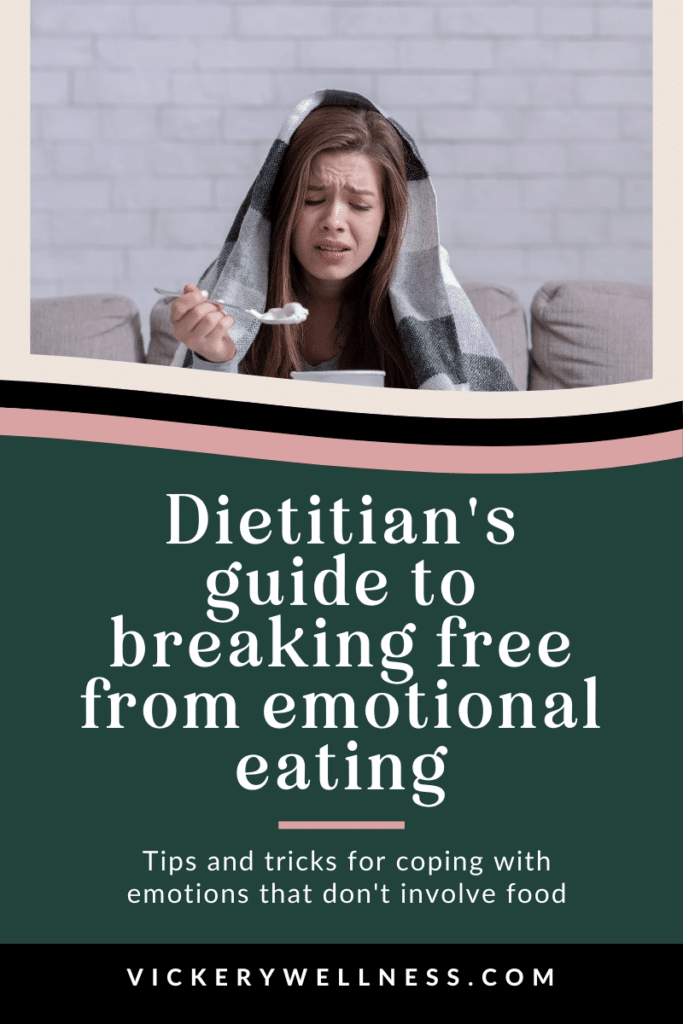
Become more aware of your emotions
If you’re struggling with emotional eating, the first step is to become more aware of your emotions. This can take some time and self-reflection, but it’s an important first step to healing from emotional eating.
Once you’re more aware of your emotions, you can start to address the root causes of your emotional eating. Often, emotional eating is a way to cope with difficult emotions like sadness, anxiety, or boredom. By addressing the emotions that trigger your emotional eating, you can start to break the cycle of using food to cope. Healing from emotional eating is a process, but becoming more aware of your emotions is an important first step.
Ask for support
One of the most important things you can do when trying to develop a healthier relationship with food is to get support from people you trust. This could be a friend, family member, therapist, or dietitian. These people can offer you invaluable guidance and support as you navigate your journey. Trying to do this alone can be incredibly difficult, and having someone to talk to can make a big difference. They can help you stay on track when things get tough and celebrate your successes with you. So don’t be afraid to reach out for help – it could be the best thing you ever do for your relationship with food.
Eating for nourishment vs. comfort
All too often, we view food solely as a source of nourishment. We see it as fuel for our bodies, and nothing more. But the reality is that food is also a source of comfort. When we’re feeling stressed or overwhelmed, we often turn to food for a bit of relief. And while there’s nothing wrong with that, emotional eating can become a problem when it starts to become our ONLY coping mechanism for emotions.
If you find yourself frequently eating past fullness in an attempt to soothe your emotions, then emotional eating could be a concern for you. Connecting with your hunger cues and honoring your appetite can be a part of the healing process. Learning to listen to your body and giving yourself permission to eat when you’re truly hungry can help you break the cycle of emotional eating. And that can lead to better overall wellbeing.
Add more tools to your coping skills toolbox
One of my favorite things to talk to my clients about is exploring other ways to soothe themselves when they’re feeling difficult emotions. This could include the obvious things like journaling, spending time outdoors, or listening to music. But, I’m a huge believer in experimenting until you find something that is REALISTIC and that works for you. It needs to be something that is just as easy, if not easier, than reaching for food.
That’s why I love exploring different options with my clients. Some of my favorites include taking a hot bath, reading a good book, or cuddling with a pet. But the possibilities are really endless. It could literally be just walking outside and taking a breath (I don’t try to fool myself into thinking I’m going to go for a walk because I know it rarely happens). The important thing is that you find something that works for YOU. Something that you can turn to in those moments when you’re struggling. Something that will help you to feel better without turning to food.
There is no one-size-fits-all solution when it comes to healing your relationship with food. But by making small changes, you can start to feel more in control and less guilty about the role food plays in your life.
Understand your emotions and food
We all have emotional relationships with food. For some of us, food is comfort. We eat when we’re happy, sad, bored, or anxious. Food can be a way to celebrate, to show love, or to cope with stress. For many of us, our emotional relationship with food is so strong that we don’t even realize it. We mindlessly eat when we’re not even hungry, or we avoid certain foods because we think they’ll make us feel bad.
But what if we could learn to understand our emotions better? What if we could see how our emotions were affecting our relationship with food?
There is a growing body of research that suggests that emotional intelligence can help us to make better choices about food and eating. Emotional intelligence is the ability to be aware of and manage our own emotions, and the emotions of others. It’s about understanding how our emotions affect our behavior – including our eating habits.
Some studies have shown that people who are emotionally intelligent are more likely to make choices about food and eating that are more in line with their goals. They’re less likely to eat past fullness or make impulsive decisions about food.
So if you’re struggling with your relationship with food, it might be worth exploring your emotional intelligence. There are lots of resources available – books, websites, apps – that can help you to start understanding your emotions better. And as you become more aware of how your emotions are affecting your eating habits, you may find it easier to find other ways to cope with your emotions.
Gain confidence with intuitive eating
One way to start healing your relationship with food is by practicing intuitive eating. Intuitive eating is all about listening to your body’s hunger signals and cravings and then giving yourself permission to eat what you really want. It’s about tuning out diet culture noise and reconnecting with your own internal wisdom about food.
When you start eating in this more intuitive way, you may find that your cravings for certain foods start to lessen. You may also start to feel more confident in your ability to make decisions about what to eat. And as you become more comfortable with listening to your body’s cues, you may find that emotional eating becomes less of a problem. If you’re ready to start healing your relationship with food, intuitive eating could be the key to gaining back confidence and finding peace around meals.
Recommended reading
I’m also a big believer in using resources to help you on this journey and that includes books, workbooks and podcasts, etc. I have a whole page devoted to my top resources. But, for this specific topic, I think it’s important to get to the deeper issue around your emotions, your body, and your relationship with food. For that, I recommend starting with the Body Keeps the Score book and/or workbook. And, of course, the OG the Intuitive Eating Workbook.
These books can help you start to connect the dots about how you may be using food throughout your life or things you didn’t even realize were happening. I do a lot of the questionnaires in the Intuitive Eating notebook with my clients. While questionnaires don’t sound super exciting, it always blows their minds when they finally make connections between certain emotions and foods that they didn’t realize were there before. Between the questions, activities, and reading portions, it can be a really helpful tool for understanding more about your thoughts, behaviors, and emotions around food.
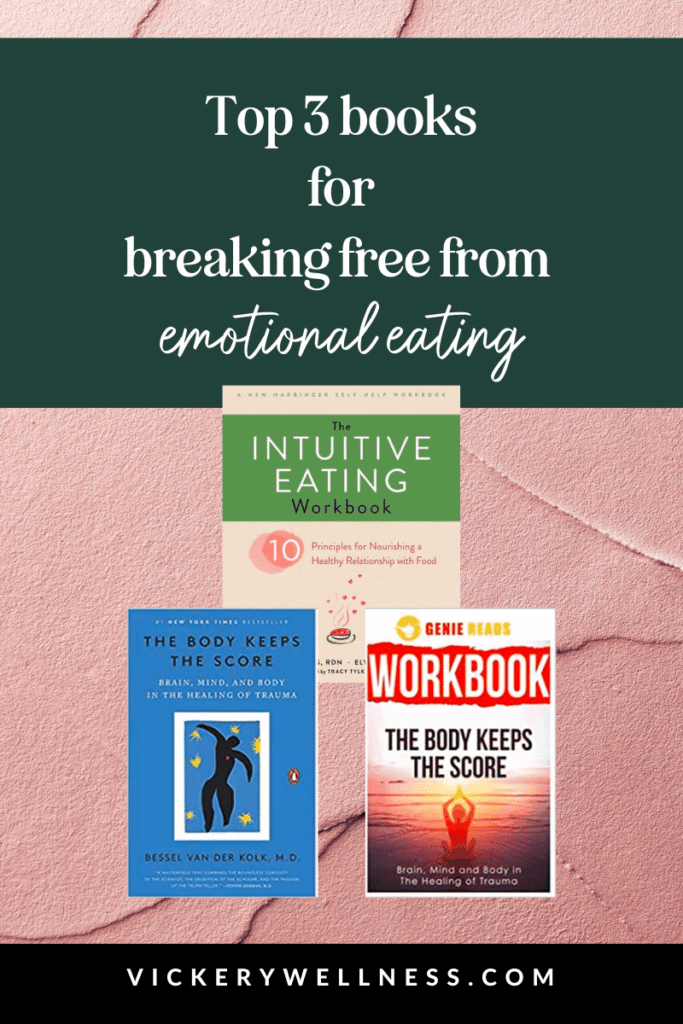
Free food and mood journal
I hope you found this guide helpful. If you’re struggling with emotional eating, please download my free Ultimate Food and Mood Journal below. This journal will help you track your eating habits AND feelings, so you can start to identify patterns that may be contributing to your emotional eating. With this newfound awareness and developing new coping skills (or tools for your toolbox as I like to say), then you can start to break free from emotional eating.
If you need one-on-one help, please be sure to reach out to me about nutrition counseling!
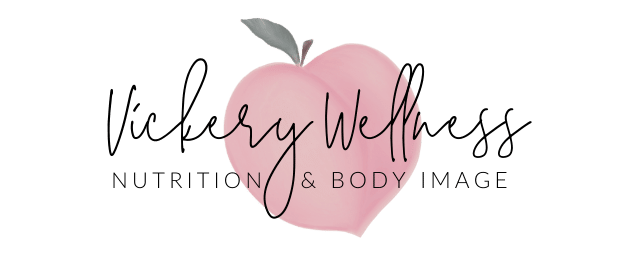


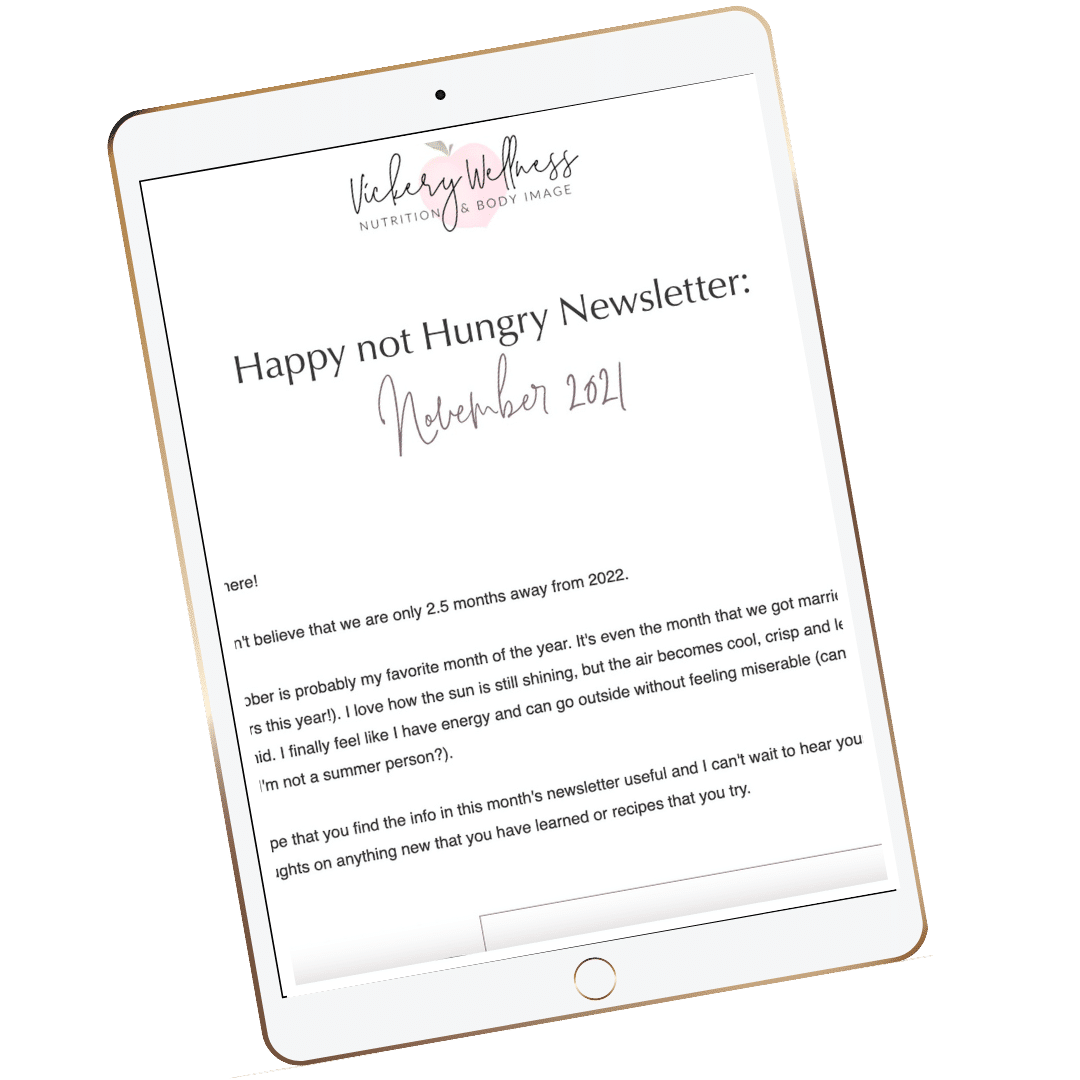
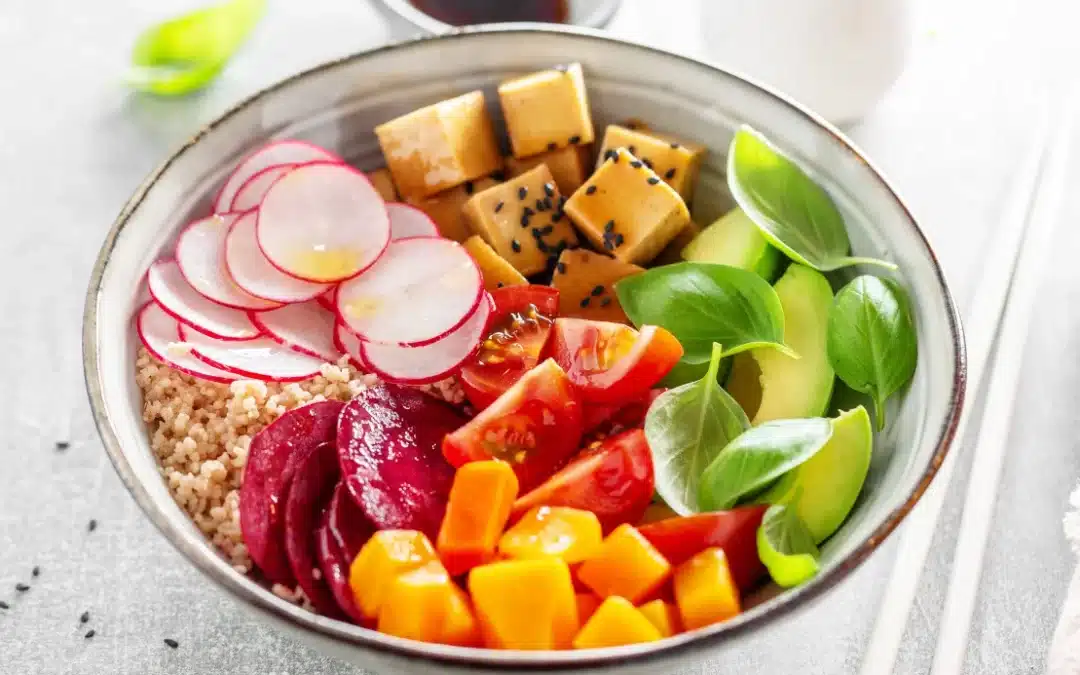



0 Comments